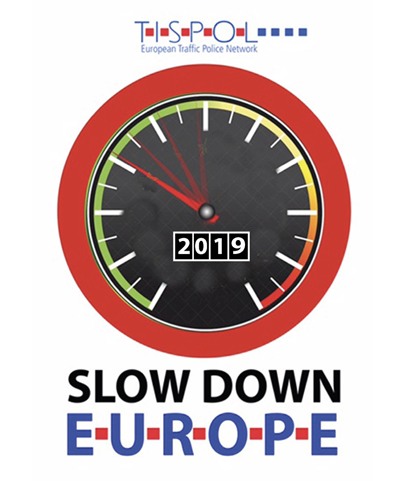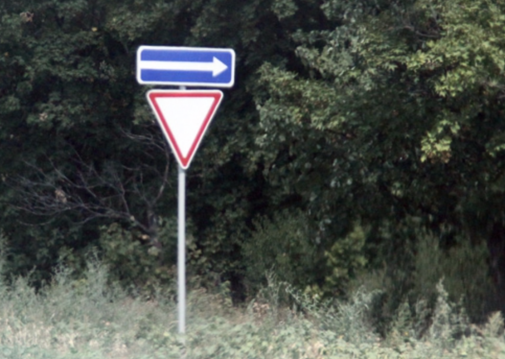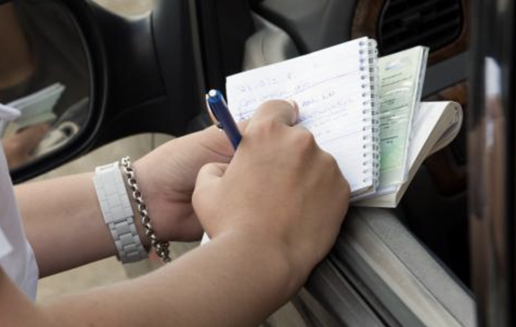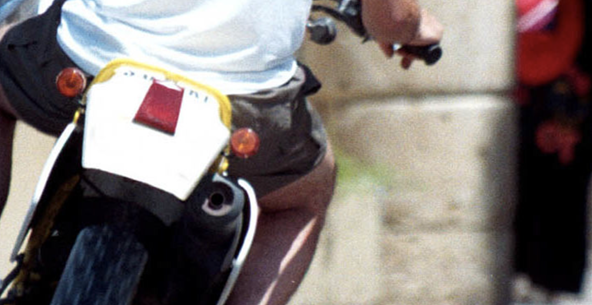
Speed Enforcement Operation all this week
24-hour #Speedmarathon starts at midnight tonight!

Police
officers across Europe have begun their latest week-long speed
enforcement operation, which runs for a week until Sunday 7
April. Included in the week’s activity is this year’s 24-hour ‘Speed
Marathon’, starting at 0000 tonight.
Figures
from 2018 show that of 3,244,397 vehicles checked during the 24-hour
operation, 92 per cent were using legal speeds. However, 257,639
speeding offences were detected, either by police officers or by
technical means.
The
‘Speed Marathon’ concept was
devised six years ago in Germany. The concept, which involves inviting
members of the public to identify locations where they believe speeding
is a problem, has been adapted and this year is to be used in 26
participating countries.
Quick facts about the 2018 Speed Marathon (18 and 19 April)
Countries involved: 23
Control sites: 12,876
Officers participating: 14,113
Vehicles checked: 3,224,397
Offences detected: 257,639
Percentage: 8% of vehicles checked were speeding
#Dontstreamanddrive: Tuesday 16 April

TISPOL
fully supports the forthcoming #Dontstreamanaddrive campaign. We
encourage everyone to get behind it and draw attention to the extremely
dangerous and illegal practice of 'live-streaming' while driving. The
campaign's founder, Neil Dewson-Smyth, has been a great friend of TISPOL
for some years, and has given us significant support for
#ProjectEDWARD.
Please help promote #DontStreamAndDrive Day - even if only with one tweet.
Twitter poll: results from last Bulletin
We
received more than 300 votes for the Twitter poll, asking you to tell
us where you would spend your last road safety dollar. Clear winner,
with nearly 60% of the vote, was mobile phone use. TISPOL's week-long
'Focus on the Road' operation takes place in September. Thanks for
taking part!
National TV coverage for one of our Project EDWARD supporters

We
enjoyed watching Chris Spinks of Westcotec on the UK's BBC1
'Crimewatch' programme recently. He was interviewed about new ways of
detecting and deterring mobile phone use while driving. Great work,
Chris!
France: 'Gilets jaunes' blamed for big rise in road deaths

Reckless
“yellow vests” have been blamed for a worrying spike in the number of
road deaths in France, despite a government decision to lower the speed
limit on the country's B-roads.
France's
road safety department attributed a 17 per cent rise in fatal road
collisions last month to the destruction of speed cameras by the “gilet
jaunes”, many of whom went on a radar wrecking spree after the
government cut the speed limit on secondary roads from 90
kilometres per hour to 80kph.
In
February, 253
people died in road accidents in mainland France, some 37 more than the
same month a year ago. The figure was also a significant increase from
January, when 238 people were killed.
Belgium: priority to the right does more harm than good, say experts
Ask many locals what the worst thing about driving in Belgium is, and they're sure to answer: the crazy priority to the right rule. Experts, as reported by the Flemish motoring organisation VAB, are in agreement, according to the Brussels Times...
The
rule, on its face, is quite simple: unless instructed otherwise,
priority must be given to vehicles coming from the right. In practice,
however, the rule “does more harm than good” by being responsible for
15,000 collisions a year, the experts say. According to the insurance
federation Assuralia, 5% of all collisions involving material damage are
a result of confusion over
priority.
Netherlands: diplomats will no longer get away with traffic offences
From
1 May diplomats will no longer just get away with traffic offences in
the Netherlands. The number of traffic violations committed by diplomats
increased significantly over the past years, and the Dutch government
is therefore implementing a new system to address the situation.
Following a
ruling in 2014, diplomats cannot receive fines. They have diplomatic
immunity on the basis of the Vienna Convention. This led to annoyance in
the Tweede Kamer, the lower house of Dutch parliament. The Ministry of
Foreign Affairs therefore decided to find a new tactic, which will be
implemented in May.
Finland: parents are giving up too soon on child safety seats

Too many children in Finland are using a seat belt when they should still be sitting in a car seat, a road safety campaign has shown. A joint campaign by the Finnish Road Safety Council and police found many cases in which small children were buckled in with seat belts when they should have been travelling in car seats.
The Finnish Road Safety Council points out children must use a car safety seat until they are 135cm tall.
Police
also found many toddlers travelling in a forward-facing direction. It
is widely recognised that rear-facing seats support the head and neck
the best in a crash situation. The Road Safety Council recommends
children travel in rear-facing seats for as long as seat weight
restrictions allow.
Cyprus: road safety campaign focuses on motorcyclists
Police
in Cyprus conducted a new road safety campaign to check mopeds and
motorbikes. Attention was given to preventing offences, such as
dangerous driving, not wearing a helmet, exceeding the speed limit and
driving without a licence.
From 2014 to 2018, more than 50 per cent of motorcyclists killed in fatal traffic collisions were not wearing a helmet.






Δεν υπάρχουν σχόλια:
Δημοσίευση σχολίου